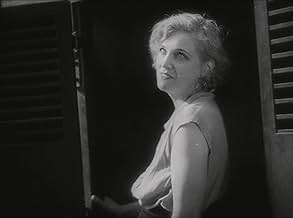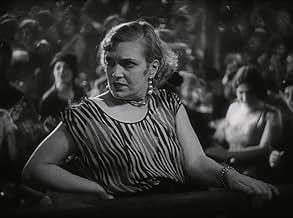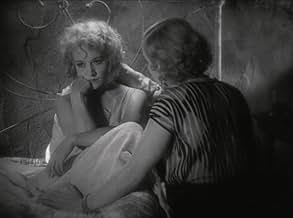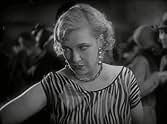Olga Baclanova(1893-1974)
- Actress
Born Olga Vladimirovna Baklanova, one of six children of Vladimir
Baklanoff and his wife Alexandra, later billed as the Russian Tigress
in her early talking films, was born August 19, 1893. She graduated
from the Cherniavsky Institute in Moscow prior to her selection in 1912
at age 19 to apprentice at the Moscow Art Theatre. During her early
years at M.A.T. (1914-1918) she appeared in perhaps 18 films bringing
her into contact with Tourjansky, Boleslawski and M. Chekov among
others. Her last Russian film, Bread (1918) was the first communist
agitprop vehicle. From 1917 she appeared in the "classics" on the
parent stage and at the M.A.T. First Studio. Her mentor,
Nemirovich-Danchenko, showcased her in avant-garde productions of the
newly created M.A.T. Musical Studio from 1920-1925. She was honored
with the Worthy Artist Of The Republic by the Soviet regime.
Eight months after her M.A.T. New York debut in December 1925, she declined to return with the M.A.T. company to Russia and subsequently defected. She was noticed by the Hollywood studios while performing on stage in Los Angeles in The Miracle in the role of the nun. Her film debut was a bit in The Dove (1927). Her dramatic Portrayals in The Man Who Laughs (1928), Street of Sin (1928), The Docks of New York (1928) and Forgotten Faces (1928) brought her critical acclaim in 1928. Her subsequent vamp/tramp roles in early Paramount and Fox talking films nearly destroyed her promising start. Stagey mannerisms and a heavy accent relegated her to supporting roles. She appeared to advantage in three films at MGM including the infamous Freaks (1932) with an unrestrained and legendary performance.
After appearing in west coast stage productions in 1931-32, she permanently left for the Broadway stage in 1933 following one last film at Paramount. From 1933 to 1943 she starred in various Broadway productions and then toured in road companies of Cat And The Fiddle, Twentieth Century, Grand Hotel and Idiot's Delight. She debuted on the London stage in 1936 in Going Places. One last big role in Claudia (1943) kept her busy for two years (1941-1943). She returned to Hollywood in 1943 to recreate her stage role. Some summer stock and occasional night club appearances followed as she moved into retirement.
During the mid-1960s Olga was interviewed by Richard Lamparski, Kevin Brownlow and John Kobal who all recognized her unique contributions in the performing arts. Her death occurred at Vevey, Switzerland on September 6, 1974 after a period of declining health.
Eight months after her M.A.T. New York debut in December 1925, she declined to return with the M.A.T. company to Russia and subsequently defected. She was noticed by the Hollywood studios while performing on stage in Los Angeles in The Miracle in the role of the nun. Her film debut was a bit in The Dove (1927). Her dramatic Portrayals in The Man Who Laughs (1928), Street of Sin (1928), The Docks of New York (1928) and Forgotten Faces (1928) brought her critical acclaim in 1928. Her subsequent vamp/tramp roles in early Paramount and Fox talking films nearly destroyed her promising start. Stagey mannerisms and a heavy accent relegated her to supporting roles. She appeared to advantage in three films at MGM including the infamous Freaks (1932) with an unrestrained and legendary performance.
After appearing in west coast stage productions in 1931-32, she permanently left for the Broadway stage in 1933 following one last film at Paramount. From 1933 to 1943 she starred in various Broadway productions and then toured in road companies of Cat And The Fiddle, Twentieth Century, Grand Hotel and Idiot's Delight. She debuted on the London stage in 1936 in Going Places. One last big role in Claudia (1943) kept her busy for two years (1941-1943). She returned to Hollywood in 1943 to recreate her stage role. Some summer stock and occasional night club appearances followed as she moved into retirement.
During the mid-1960s Olga was interviewed by Richard Lamparski, Kevin Brownlow and John Kobal who all recognized her unique contributions in the performing arts. Her death occurred at Vevey, Switzerland on September 6, 1974 after a period of declining health.






















